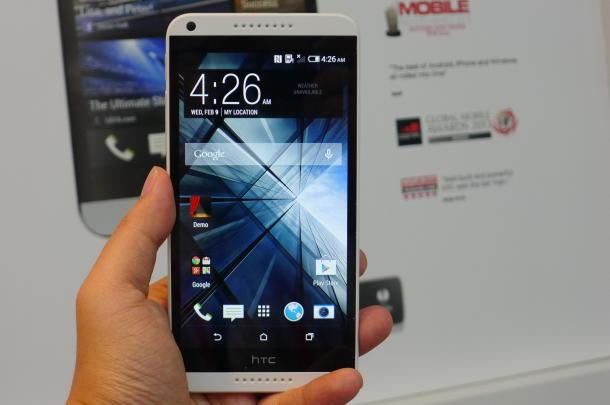
With this year's flagships having already started rolling out with the likes of the LG G Flex, the Samsung Galaxy S5 and the Sony Xperia Z2, it can be hard not to get excited about the fact that things are finally starting to happen. The rollout has started, and now the smartphone market is experiencing an effect similar to toppling dominoes - one after one, they will fall into place. One of the most anticipated devices from here on out happens to be from Taiwanese manufacturer HTC, who managed to pick up the pieces of a very low profit year in 2012 with their 2013 flagship, the HTC One. This year we have all eyes on the HTC M8, or The All New One, in hopes that HTC will be able to continue their trend of just one successful release this year instead of several unsuccessful flops like they had in 2012 and 2011.
So how does a company who once had, and consequently lost, it all get back to being on top? The release of the HTC One was certainly a good start for the company, but while it may have been popular by word of mouth, the popularity of the device didn't necessarily reflect too well with profits. Although by the end of the year HTC's profits were starting to head upwards instead of down, it only managed to do so marginally. HTC has to do something difference in order to make a difference, and it is looking more and more like they might have to return to old habits in order to do so.
I've had my reserves about HTC releasing a gaggleblob of phones again, mostly out of worry because it seemed that when HTC was doing this back in 2011 and 2012 they were doing so with very little success. The names of the releases were confusing, the variations were confusing, and I believe it also had something to do with the rise of the almighty Samsung Galaxy S line. There were a lot of things going against HTC at the time, and perhaps last year's single line of devices (HTC One, HTC One Mini, HTC One Max) was what they needed to get themselves together in order to prepare their tactics for this year. From what HTC claims, although they will be launching a successor to their highly praised HTC One, they're also going to focus on making more mid-range phones. Not just any mid-range phones, though - mid-range phones with good specs.
Could it be that HTC is attempting to take the Motorola route to gain some traction in the industry?
I mentioned in a post earlier today that specs don't mean a whole lot to me these days, citing that the Galaxy S5 really opened my eyes to such a realization. However, other phones are good examples as well that times are changing. Flagships are still important, but the Moto G was also one of Motorola's most successful products last year, and it has the same specs as phones being released in 2011. The difference? The price. The low price of the Moto G was able to justify the fact that it didn't have the greatest specs, but nonetheless the phone still worked well and did so at a dirt cheap ($179) price.
Motorola's flagship, the Moto X, also wasn't too shabby of a product. Perhaps a bit overpriced, but at the end of the day I actually ended up being rather impressed by the phone. It's one of the few flagships that came in a compact size, has great battery life, interesting and useful features and of course touchless control (which I use quite often when using my Moto X). While many people wouldn't have chosen it over the HTC One or the Galaxy S4 when looking for a high-end flagship phone, it was still a fairly well-known device that had interesting features to offer. Even as mid-to-high range device, I find that I enjoy the device a lot. Plus, at this point the price seems somewhat reasonable at $399.99, with plenty of sales already going on.
Motorola has been making headlines with its two 2013 devices, which is strange that something as low-end as the Moto G would garner as much coverage as it did. Nonetheless, it was still and impressive device for the price. So one has to wonder if this is the road HTC will end up taking this year themselves, or if focusing on mid-range will mean something else? It seems more like the former with phones like the HTC Desire 816 and 610 hitting markets in Europe and Asia, with the price of the 816 being 1,800 yuan (or just under $300 US dollars). The 610 still doesn't have a definite price, but I imagine it will be somewhere around the same price.
Honestly, as long as HTC keeps it clean and ups their marketing campaign a bit (because I still think that's an issue) then maybe focusing on making mid-range phones better and more affordable isn't such a bad idea.
Readers, what are your thoughts on HTC focusing more on mid-range phones? Do you think this could play out for them in the long run rather than just releasing one high-end smartphone? Let us know your thoughts in the comments below!